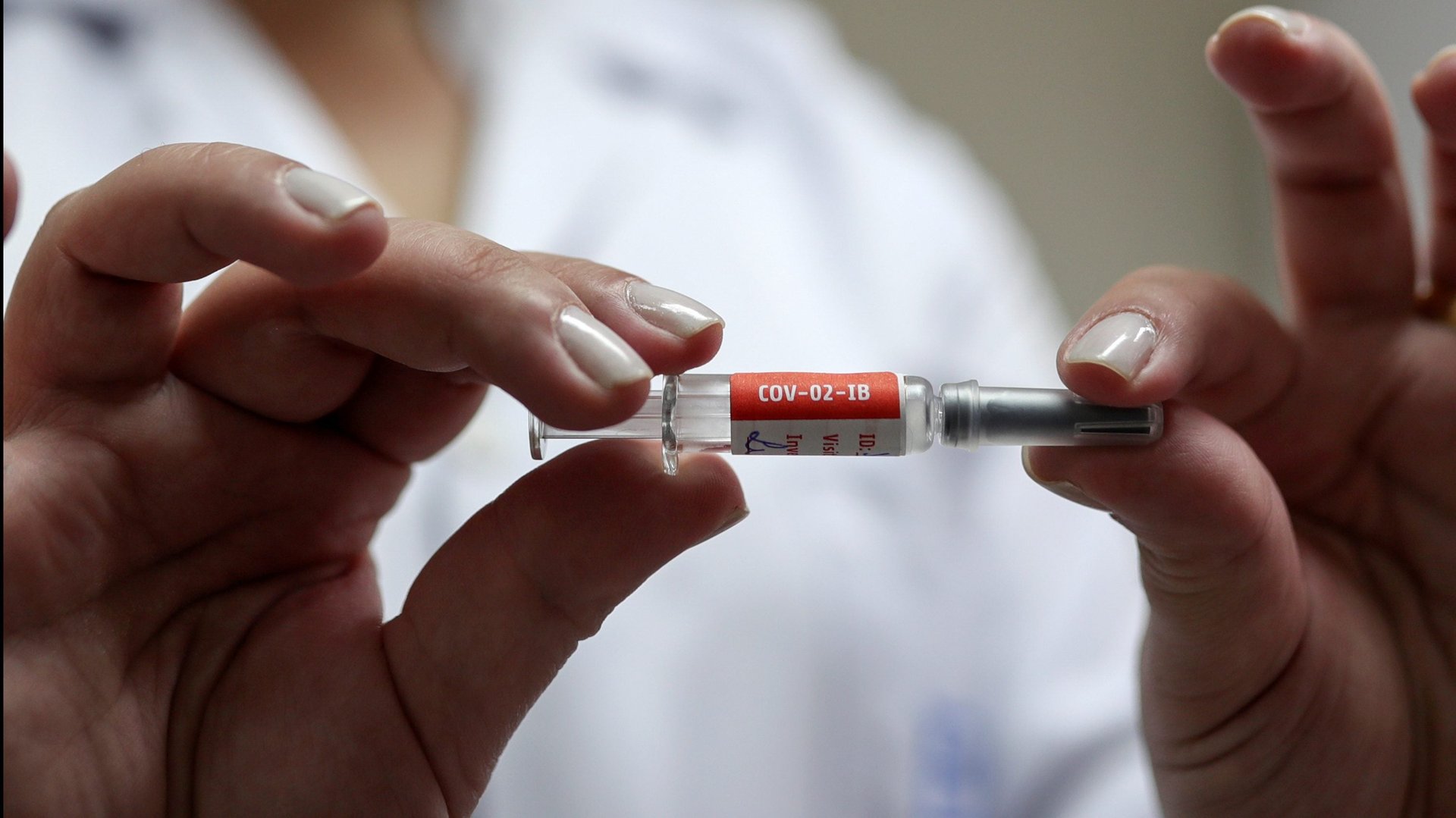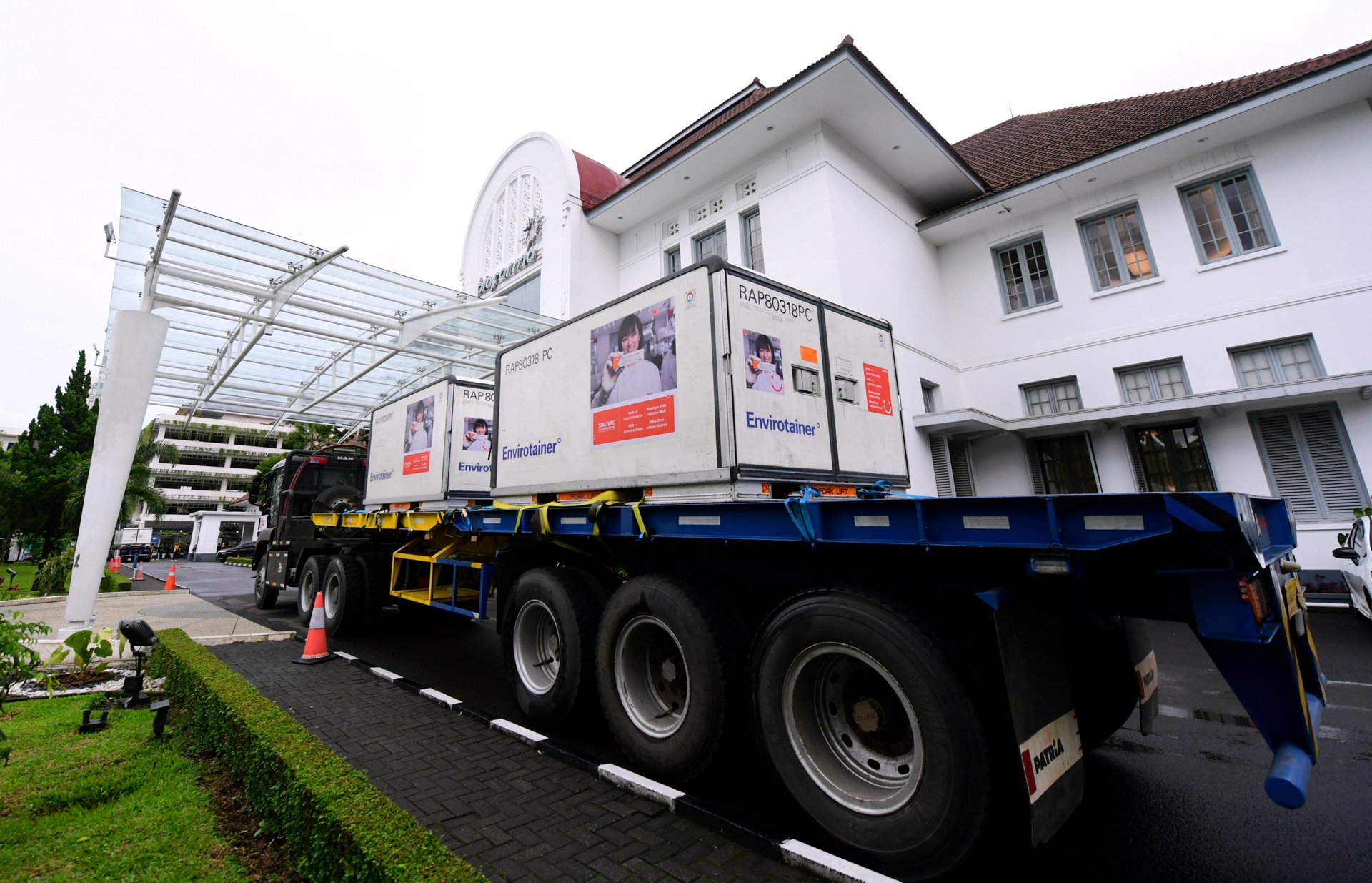Who is using China’s Covid-19 vaccines?
The inoculation of a 90-year-old British woman on Tuesday marked the start of the UK’s first mass Covid-19 vaccine campaign, and will likely be followed by widespread vaccination globally in the coming months.


The inoculation of a 90-year-old British woman on Tuesday marked the start of the UK’s first mass Covid-19 vaccine campaign, and will likely be followed by widespread vaccination globally in the coming months.
But while Britain’s is certainly the first mass rollout of the Pfizer/BioNTech vaccine, it’s not the first widespread use of a coronavirus vaccine per se. In China, close to a million people have already been given one of the Covid-19 vaccines being developed there, including overseas construction project employees and students, a move that sparked concern among several health experts as the shot has not yet been approved by regulators. Before Britain granted emergency-authorization to the Pfizer vaccine, a few countries had also used emergency approval to began offering China’s Covid-19 shots to health workers.
Currently, four Covid-19 vaccines from three Chinese firms are at an advanced stage: Sinopharm has two vaccines in development; private US-listed biotech firm Sinovac has developed a shot called CoronaVac; and CanSino Biologics also has a candidate. Unlike the Pfizer and Moderna vaccines, China’s candidates don’t require ultra-cold storage, making them especially useful to developing countries.
The Sinopharm vaccines have been tested on 60,000 volunteers across Argentina, Bahrain, Egypt, Indonesia, Jordan, Morocco, Peru, Russia, Saudia Arabia, and the United Arab Emirates as part of Phase 3 trials. Sinovac’s CoronaVac has been tested in Brazil, Chile, Turkey, and Indonesia, among others. Neither company has released information on efficacy.
In contrast, pharmaceutical giants like Pfizer and Moderna made public some findings from their late-stage trial data, while also providing the data to regulators for analysis. Canada followed the UK to give the Pfizer shot emergency approval yesterday, and the US could follow suit this week.
The United Arab Emirates said yesterday that data from Phase 3 trials conducted there showed the Sinopharm shot it had used was 86% effective, and confirmed it had registered the vaccine, which is a necessary step for an overseas medicine to be sold in the country. The shot has been in emergency-use for health workers in the Gulf country since September. Last week, China’s coronavirus task force said a big announcement on vaccines was coming shortly, which could signal another regulatory development.
These are the countries that could use the Chinese vaccines widely starting as soon as next year, judging by their confirmed orders tracked by a Duke University health initiative.
One Brazilian state has even set a timeline for when it hopes to use CoronaVac. São Paulo, home to 46 million people and the country’s richest state, said it will start a mass immunization campaign using the drug on Jan. 25, beginning with healthcare professionals, indigenous groups, and people older than 60.
São Paulo’s Butantan Institute, the country’s top vaccine maker, has been working with Sinovac to carry out the Phase 3 trials on 13,000 volunteers. It said it expects Sinovac to share data from those trials on Dec. 15, and to send them to the country’s health regulator.
The state plans to vaccinate some 9 million people by the end of March, and send 4 million doses (which will cover 2 million people) to other states, assuming federal regulators sign off. President Jair Bolsonaro has been critical of São Paulo’s work with Sinovac and said he’d rather wait and have the country use the Oxford-AstraZeneca vaccine.
